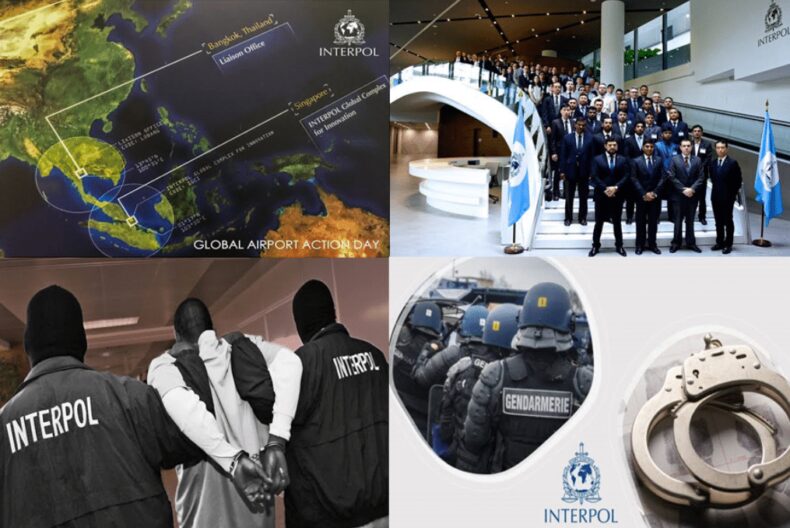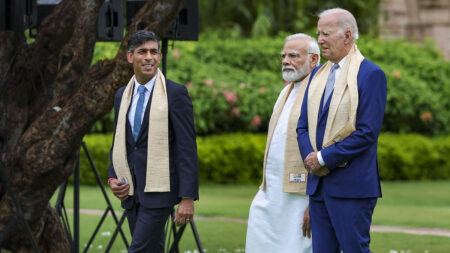“Interpol is primarily focusing on ordinary law crimes, we are going against child abusers, rapists, murderers, drug dealers, cybercriminals who account for the majority of crimes around the world, and we have no specific and concrete role regarding any State-sponsored activity”.
– Interpol Secretary General Jürgen Stock.
These words depict that the vigilance of Interpol is diminishing against the global plague called terrorism.
The history of Interpol
In the pre-19th century, international police cooperation was limited and requirement oriented. The primary attempt in this regard was in 1851 called the Police Union of German States, consisting of police from various German-speaking nations.
To counter transnational crimes, the International Criminal Police Congress hosted by Monaco in 1914 gathered the police and legal officials from 24 nations to discuss and share expertise and skill sets.
Finally, on 7 Sep 1923, a prelude was laid at another International Criminal Police Congress in Vienna, headed by Johannes Schober, President of the Viennese Police Department. The 22 delegates concurred to establish the International Criminal Police Commission (ICPC).
The International Criminal Police Commission (ICPC) adopted its constitution at its 25th session (Vienna – 1956) and got rechristened as International Criminal Police Organization (ICPO).
Today the organization is the largest international police group Headquarted in Lyon, France, with seven regional bureaus worldwide and a National Central Bureau in all 195 member states.

The organization provides investigative support, expertise, and training to law enforcement worldwide, focusing on three major areas of transnational crime: terrorism, cybercrime, and organized crime.
The information relating to its activities is shared among its membered nations in the form of notices.

The declining vigilance
The glorious days of UNSC and Interpol
The organization was very active in combating terrorism in the past two decades. Mainly it worked closely with UNSC to combat terrorism.
- ICPO assisted the UN Security Council with the implementation of the sanctions regimes, most extensively the al-Qaida and Taliban sanctions regime, by circulating relevant information to law enforcement authorities worldwide;
- Immediately following the attacks of September 11, 2001, Interpol announced the creation of the 11 September Task Force to coordinate the investigation and also issued fifty-five Red Notices for concerned terrorists.
- In April 2002, ICPO announced the creation of a terror watch list, which provides information on fugitive and suspected terrorists for law-enforcement authorities across the world.
Again in 2002, a new internet-based global communications project called I-24/7 was announced that connected law-enforcement officials in all of INTERPOL’s 188 members (as in 2022).
- Additionally, ICPO was a frequent participant in country visits conducted by the Security Council’s Counter-Terrorism Committee Executive Directorate (CTED), to assess states’ efforts to implement UN Security Council Resolution 1373.
- ICPO also maintains a terrorism database, and as of 2010, the U.S. had fed information on 1,065 terror suspects to this database, by 2013 the database had information on 11,000 suspects.
This additional information reduces the frequency with which innocent individuals with the same name as a suspect are falsely identified as terrorists.
- Interpol also assisted in the U.N. peacekeeping missions and supported counter-terror operations in Iraq and Afghanistan.
In one case, Interpol shared several telephone numbers to Belgium and Italy collected from a cell phone of an apprehended terrorist. This information helped in tracking and terminating terror networks in those nations.
- Interpol has developed a Bio-terrorism Incident Pre Planning and Response Guide and conducted several workshops on the topic, bringing together police officers, healthcare and customs officials, and prosecutors.
- Interpol is one of three leading entities in the Working Group on Strengthening the Protection of Vulnerable Targets and co-chairs the Working Group on Border Management Related to counter-terrorism.
The creeping inefficiency
But in several instances in the past and recently the organization is found to be ineffective in counter-terrorism.
The organization has suffered historical abuse. Shortly after the rise of Nazis Germany in 1933, Nazi supporters started to rein the ICPC (headed by the Chief of Vienna police).
And after Germany annexed Austria in March 1938, ICPC President Michael Skubl was imprisoned and replaced by Otto Steinhausl, a representative of the Nazis.
This exploitation by the Nazis continued until the end of the Second World War following which the organization adopted its constitution in 1956.
The two instances in recent times are mainly:-
- On 23 April 2012, the ICPO denied the request of Egypt to issue a Red Notice against 15 personnel from NGOs accused of illegally operating pro-democracy programs funded by the U.S.
Further, the ICPO refused the subsequent request by Egypt seeking cooperation to apprehend and extradite seven individuals associated with the production of a controversial Internet video.
Interpol stated that its constitution prohibited it from getting involved in religious controversies.
- Very recently in this month, Interpol refused to issue a Red Notice against the Khalistani separatist – Gurpantwant Singh Pannun who is a wanted criminal by the
- The report published by the U.S think tank The Heritage Foundation blatantly recommends the U.S to prioritize self-interest under Interpol.
The report disreputed the Interpol to be fuddled problems, creating a dilemma for the U.S. by alleging that the initiatives are so useless and dangerous that the U.S. should withdraw from them.
If the U.S. withdraws then the organization suffers a financial setback, since the U.S is the top funding position to the organization till 2022.

- The most disgruntling feature of Interpol is that despite having a substantial number of membered nations there is no provision for the expulsion of a member for not making a financial contribution.
- As per Article 38 of the Interpol constitution the organization is sustained by voluntary aid and monetary gifts by the members and membered nations.
In the recently released global crime record by Interpol, cyber-terrorism is one among the grievous crimes, but the efforts by the organization are yet at ground level to curb it.

These incidents illustrate the substantial strengths and potential weaknesses of Interpol.
Read More –
https://tdznkwjt9mxt6p1p8657.cleaver.live/india-becomes-the-68th-member-of-interpols-child-sexual-exploitation-database-2/













